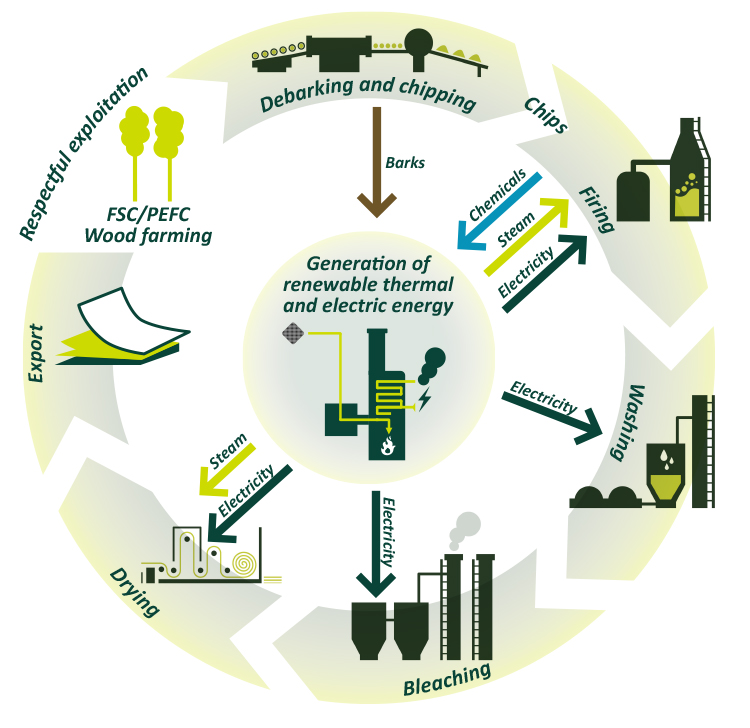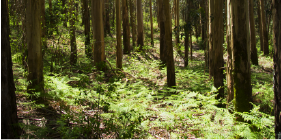Pulp-production process
The production process of Ence’s bio-factories is based on the use of natural, renewable and home-grown raw materials, it is respectful of the environment and comfortably meets the strictest European environmental standards.
In such process, the energy required to produce pulp with which recyclable products are manufactured to later contribute to the development of the circular economy, is generated based on the maximum reuse of resources to take good care of the natural environment.

Debarking and chipping
Our bio-factories work with eucalyptus wood grown in certified plantations in Galicia and Asturias and managed in a sustainable and responsible manner. After wooden logs arrive to the biofactory, their bark is extracted and they are chipped to ease the
firing to subsequently obtain the pulp.
Firing
Bark and forest residues are used as a biofuel to generate energy in the form of steam with which chips are cooked in large containers called digesters, in a liquor composed of several elements that help to separate pulp fibers from lignin, another major component of wood.
Generation of renewable energy
The cooking liquor is retrieved and reused in the process. Lignin, which is an excellent renewable and natural biofuel, is also used to generate more energy to feed the pulp manufacturing process.
Washing and bleaching
Pulp fibers are washed with water to remove impurities and lignin residues. The pulp is bleached using an environmentally friendly method.
Drying
The pulp is dried, cut and packed, all this availing the steam and electrical energy produced in the same biofactory process.
Export
The pulp will be ready for commercialisation with the prestigious seal Nordic Swan of environmental quality of the Scandinavian countries, and the electrical energy left over from the process will go to the electrical system that supplies our homes.
About 95% of Ence’s pulp production is destined for export, mainly to Northern European countries.



